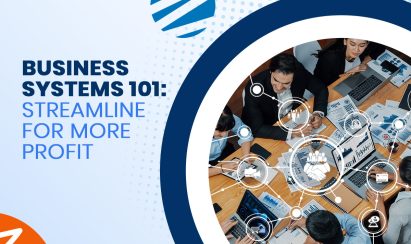If you’re on the fast track to leadership, then you need to make sure that you know and practice better social skills. Social Skills is an area that everyone can work on. Everyone has bad days – you, me, and the guy sitting next to you.
When it came to measuring intelligence, the intelligence quotient was a standard test that people took and was taken quite literally as fact for several years. However, the IQ test is not the end-all or be-all of intelligence measuring. If you want better social skills and personal growth, you need to know what it means to be emotionally intelligent.
The Definition of Emotional Intelligence
As a leader, you need to be aware of how you’re perceived. Emotions have a way of emanating from people in leadership positions and being contagious to those around them. One of the core competencies of being a leader is mastery over one’s emotions. Not every manager is a leader. Just because the manager is in a leadership position does not make him or her a leader. Leaders possess certain qualities that not all managers possess or embrace. As the leader of a team, you need to be continually aware of your own emotional intelligence through the measurement of these five core competencies.
Emotional Self-Awareness
Always be aware of yourself and how you’re feeling. Are you happy? Are you sad? How you’re feeling can have a direct effect on the morale and productivity of your team. When you’re aware of your own emotions, you have the necessary tools at your disposal that enable you to think before you say anything or do anything.
Emotional Self-Regulation
Emotional self-regulation means you’re able to decide how you want to feel and make it happen. You’re not the victim of circumstance. You recognize that happiness is a choice and you’re proactive in making that choice.
Emotional Self-Motivation
When you can regulate your emotions, you can motivate yourself simply by telling yourself what to feel. You focus on the positive – not the negative. You make a conscious decision to push yourself toward being positive and productive. Anyone can be negative. It takes no effort to be negative. The question is – can you be positive in a negative situation?
Empathy
Empathy is the ability to put yourself in someone else’s shoes and attempt to feel what they’re feeling. This ability enables you to change your perspective so that you can understand and comprehend what other people are going through. Empathy is one of the marks of a good leader.
Nurturing Relationships
There’s a difference between a sincerely caring about someone and simply being polite and courteous. When you have sincere intent, it shows. This kind of resolve enables you to take a stand against what is popular. It’s more than just telling somebody that they did a good job. It’s following through so that people sincerely believe that you’re the genuine article and that you care about other people.
The Five Steps to Better Social Skills and Being More Emotionally Intelligent
Knowing what the core competencies of being emotionally intelligent are is only half of the battle. The other half is taking this information and leveraging it for your own personal growth.
Educate Yourself
This part is already being done for you – you’re reading this article. By educating yourself on what it means to be more emotionally intelligent, you’re taking the first step toward personal growth and becoming more emotionally intelligent.
Know Where You Stand and How You’re Perceived
Hindsight is 20/20. Not only do you need to be aware of where you stand in relation to your own personal growth goals, but you need to understand and be aware of how others perceive you. Ask around for feedback on your own behavior and how other people might give you clues on how you can improve.
Narrow Your Focus
Work on one thing at a time. The easiest path to mastering a skill is to focus on that one skill. If you opt to be a jack of all trades, you will be a master of none. By narrowing your focus and keeping it that way, you’re giving yourself the ability to set and achieve small and measurable goals.
Create External Accountability
When you ask around for feedback about your behavior and how other people might perceive you, continue to ask the same individuals. Ask them to monitor you and help you reach your own goals. This is called creating your own board of directors. This group of people will help you and hold you accountable for the achievement and progress of your own goals.
Never Stop Learning
Remember how I said that everybody can use more social skills? That means that no matter how far you grow, you’ll never be perfect. There will always be room for more personal growth. Personal growth can snowball in a very short amount of time when you focus on it. Just remember that it takes time and patience. Don’t be too hard on yourself. Take things one day at a time and make today better than yesterday.
No matter your own personal level of social skills, sometimes it’s just difficult to be productive. Let us help you – give our FREE Headline Creator a try today. Before you know it, you’ll be on the road to creating content your readers will love.




